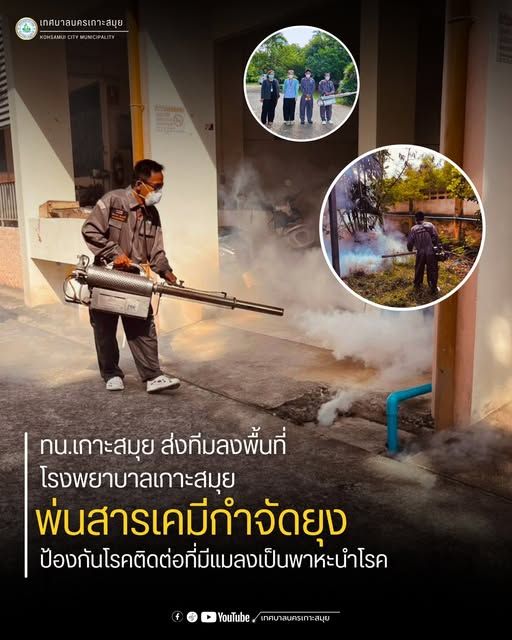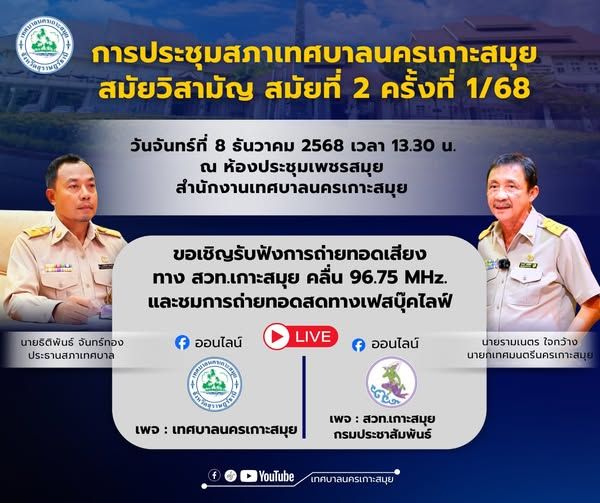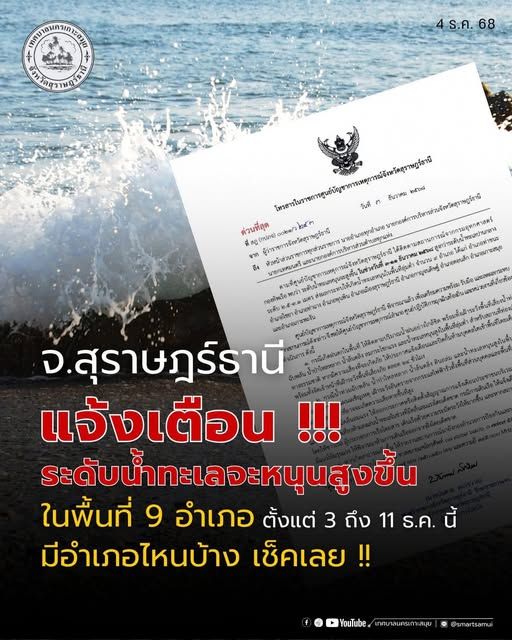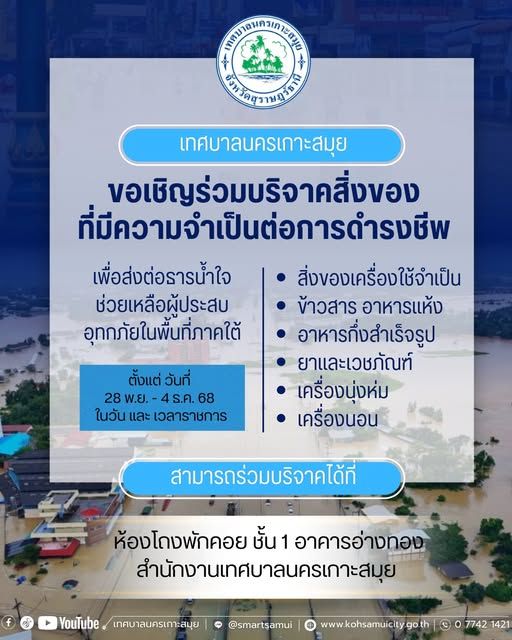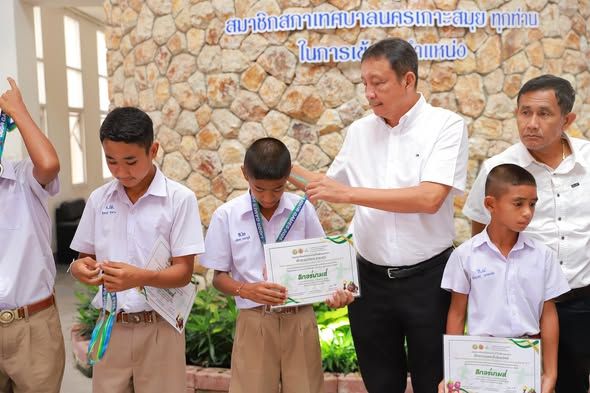Koh Samui is actively combating mosquitoes this rainy season! Health teams sprayed insecticides around the hospital and are urging community participation to prevent dengue and other diseases.
KohSamui #DenguePrevention #MosquitoControl #SustainableIsland #ThailandTourism #TravelThailand #IslandLife #PublicHealth #CommunityEffort #Samui
Overview of Seasonal Mosquito Challenges
With the onset of the rainy season, Koh Samui faces an increase in mosquito populations. The warm and wet conditions create ideal breeding grounds for mosquitoes, particularly species that are known vectors for diseases such as dengue fever. The elevated risk of transmission of vector-borne illnesses necessitates comprehensive control efforts.
Vector-Borne Disease Risks on Koh Samui
Mosquitoes are recognized carriers of several viral illnesses, including dengue fever, chikungunya, and Zika virus. In particular, the Aedes aegypti mosquito is identified as the primary vector responsible for spreading dengue in Thailand. Outbreaks of these diseases often correlate with the rainy season due to a spike in standing water, which serves as mosquito breeding sites around living and working areas.
Municipal Action: Targeted Insecticide Spraying
In response to the increased risk, the Health Promotion and Disease Control Division of Koh Samui’s Public Health and Environment Department mobilized dedicated teams for targeted mosquito control at Koh Samui Hospital. On November 14, 2025, staff were dispatched to apply chemical insecticides in critical areas, including doctors’ residences and staff dormitories, as well as surrounding hospital grounds. The goal is to disrupt mosquito breeding cycles and reduce the risk of disease transmission within these high-risk zones.
Preventive Strategies and Community Engagement
Beyond chemical spraying, Koh Samui’s public health authorities advocate for complementary preventive actions. These include:
– Regular removal of standing water from containers and plant pots
– Ensuring proper disposal of waste to prevent water accumulation
– Utilization of mosquito nets and screens in residences
– Community education programs about eliminating breeding sites
Public cooperation is key to sustaining the effectiveness of municipal interventions, particularly in urban and community settings.
Integrating Public Health with Sustainable Development
The mosquito control initiative is aligned with Koh Samui Municipality’s broader vision of a “Smart & Sustainable Island.” Efforts focus on fostering a safe, healthy, and livable environment for residents, healthcare workers, and visitors alike. By integrating health promotion with environmental stewardship, Koh Samui aims to minimize disease risks while pursuing sustainable urban development.
Continuous Surveillance and Rapid Response
On-going surveillance for vector-borne diseases supports early detection and timely response to potential outbreaks. Health authorities regularly monitor mosquito populations and reported cases of mosquito-borne illnesses to adapt their strategies as needed. This integrated approach ensures Koh Samui maintains its reputation as a safe and healthy destination throughout the year.
Frequently Asked Questions
FAQ: Mosquito Control During the Rainy Season in Koh Samui
How is Koh Samui addressing the increase in mosquitoes during the rainy season?
Koh Samui’s Health Promotion and Disease Control Division is taking proactive steps by spraying insecticides around critical areas such as hospitals and residential zones for healthcare workers. These efforts aim to disrupt mosquito breeding cycles and reduce disease transmission risks during the seasonal surge in mosquito populations.
What role does the community play in mosquito control efforts?
Public participation is vital to the success of mosquito control initiatives. Residents are encouraged to remove standing water from containers, properly discard waste, use mosquito nets and screens at home, and join community education efforts to eliminate breeding sites. Effective mosquito control depends on both municipal actions and sustained community involvement.
Why is mosquito control important for public health and sustainable development in Koh Samui?
Mosquitoes are vectors for diseases like dengue fever, chikungunya, and Zika virus, which pose significant public health risks, especially during the rainy season. Koh Samui integrates mosquito control with its broader vision of being a smart and sustainable island. This ensures a healthy environment for residents, healthcare workers, and visitors, supporting both public health and eco-friendly development.
